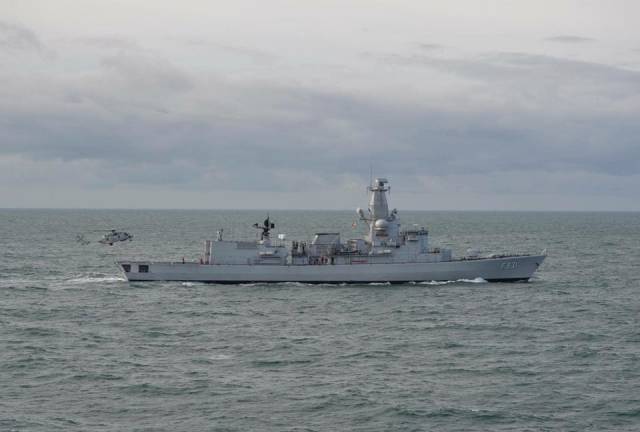#NavalVisits - Navies from neighbouring nations of France, Belgium and the Netherlands are to arrive in Dublin Port today in advance of the May Bank Holiday Weekend, with one ship from each navy visiting, writes Jehan Ashmore.
First to arrive is the French Navy's Éridan class minehunter Andromède (M 643) one of the 'Tripartite' vessels completed in collaboration of the three visiting navies to the Irish capital.
Already in the port to welcome the trio of European naval visitors is the Naval Service's OPV90 class L.E. William Butler Yeats (see story). The second of three 'Beckett' class sisters in service, arrived on Tueday and is berthed at Sir John Rogerson's Quay.
While across Dublin Bay, is where yesterday CPV L.E. Ciara docked in Dun Loaghaire Harbour where an unusual caller the ro-ro Stena Carrier underwent a survey. Some of the '4Runner' class sisters down the years have been chartered to the UK's Royal Fleet Auxiliary and NATO.
Returning to Dublin Port is where Andromède is to berth at Sir John Rogersons Quay closer to the centre of the capital. It was in the French capital yesterday where Minister for Agriculture Food & Marine, Michael Creed TD met his French counterpart, Stephane Travert.
Afloat adds during the French naval visit, the Association of Veterans of the Foreign Legion in Ireland meets for the annual commemoration of the Battle of Camarón. The ceremony this year will take place on the Bank Holiday Monday, 5 May at 11:45 am at Collins Barracks. This free event is open to all to attend at the venue close to the banks of the Liffey.
As for this morning, the Dutch Navy's HNMLS Evertsen (F805) is to make an appearance albeit docking at a deeper quay downriver. The vessel is the fourth De Zeven Provinciën-class frigate of the Royal Netherlands Navy.
The third visitor, the Belgian Navy's BNS Louise-Marine (F931) will arrive in the afternoon and is to berth next to Andromède. The final caller to the capital is the second of a pair of Karel Doorman-class frigates of the Belgian Maritime Component (the official name of the navy). The frigate commissioned in 2008 was acquired three years previously from the Netherlands Navy.































































